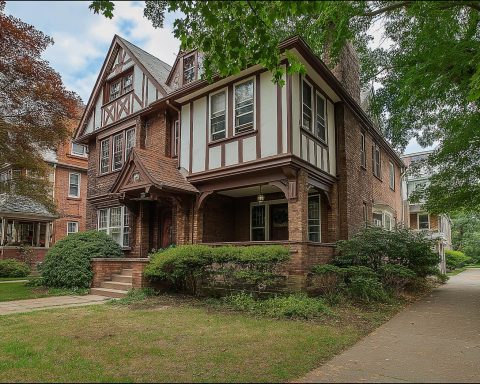- UK Housing Sputters: British asking prices fell annually for the first time since 2024 while rent inflation hit a four-year low reuters.com reuters.com amid tax change jitters and cooling demand.
- China Property Slump Deepens: New construction starts in China plunged ~19.5% year-on-year through August reuters.com, with new home prices down 2.5% annually in August as a real estate crisis erodes household wealth reuters.com.
- Canada Declares Housing Crisis: Prime Minister Mark Carney unveiled a new C$13 billion federal agency to boost affordable homebuilding reuters.com reuters.com, admitting “we’re in a housing crisis” that needs “all hands on deck” reuters.com.
- India’s Price Surge Traps Renters: Indian home prices are now forecast to jump 6.3% in 2025 and 7.0% in 2026, beating earlier predictions reuters.com. A dearth of affordable housing is forcing millions into costly rentals despite robust economic growth reuters.com.
- Big Money Deals: Blackstone inked a deal to buy $869 million in U.S. single-tenant retail property loans at a discount bisnow.com, part of its $22 billion push into real estate debt amid distressed opportunities bisnow.com.
- Office Market Shakeups: In New York, law firm Simpson Thacher is reportedly taking ~700,000 sq ft at Extell’s new Fifth Avenue tower bisnow.com – a billion-dollar project anchored by IKEA – marking one of 2025’s largest office leases bisnow.com. Over in London, landlords are reeling from a ban on upward-only rent reviews, a move forcing innovation as they can no longer bank on automatic rent hikes bisnow.com bisnow.com.
- Middle East Stays Hot: Gulf markets show momentum – Qatar’s property sales jumped 18.5% in one week of early September arabnews.com – and Dubai’s Property Finder portal secured a $525 million investment led by Permira (with Blackstone participation) to expand its MENA real estate platform generalatlantic.com.
- Resilient Investment Flows: Despite higher interest rates, $380 billion poured into global real estate in H1 2025 marketsgroup.org. Commercial deals are picking up – Q2 office transactions hit $45 billion globally (up 12% YoY) as buyers adapt to new pricing marketsgroup.org – and industrial/logistics assets held firm with ~$86 billion in H1 trades marketsgroup.org, underscoring investor confidence.
North America: Housing Headwinds and New Initiatives
United States – mixed signals. America’s housing market is sending conflicting cues. Mortgage rates just saw their sharpest weekly drop in over a year, with the 30-year fixed falling to ~6.35% worldpropertyjournal.com. “Mortgage rates are headed in the right direction and homebuyers have noticed,” said Sam Khater, chief economist at Freddie Mac, noting a surge in purchase applications worldpropertyjournal.com. That dip in borrowing costs has lured sidelined buyers back, helping to offset 2025’s earlier slowdown in sales. However, affordability remains a hurdle – even at 6.3%, rates are above mid-2024 levels, and high prices plus hefty down payments continue to strain average buyers worldpropertyjournal.com. Industry watchers caution that any housing rebound is fragile and tied closely to the broader economy and Fed policy. Indeed, foreclosures and delinquencies have been inching up in some regions, and inventories remain tight worldpropertyjournal.com worldpropertyjournal.com, keeping pressure on first-time buyers despite the rate relief.
Meanwhile, major U.S. real estate investors are hunting for opportunities in a higher-rate environment. Blackstone – the world’s largest alternative asset manager – made headlines with a new $869 million deal to purchase a portfolio of single-tenant retail property loans from First Internet Bancorp bisnow.com. The loans, backed by assets like pharmacies, fast-food restaurants and car washes, are being acquired at around 95% of face value bisnow.com. This move is part of Blackstone’s aggressive $22 billion expansion into real estate credit in the past two years bisnow.com. Executives say they’ve been “looking for discounted deals” bisnow.com as higher financing costs and tighter bank lending create openings for private capital. In a similar vein, private equity and institutional investors have kept overall property investment surprisingly resilient – Savills reports about $380 billion was invested in global real estate in H1 2025 marketsgroup.org. In the U.S., office deals even jumped as some investors bet the sector has bottomed out; Q2 saw a 50% surge in U.S. office transaction volume from a low base marketsgroup.org. Still, not all segments are rebounding: “extend-and-pretend” refinancing is keeping some distressed offices afloat, and senior housing and multifamily have attracted more capital than flashy office towers in recent months marketsgroup.org.
Canada – tackling an affordability crisis. North of the border, a bold policy response is underway to address Canada’s housing affordability crunch. Prime Minister Mark Carney (the former central banker) declared “we’re in a housing crisis” and announced a new federal housing development agency with C$13 billion (≈$9.4 billion) in initial capital reuters.com. The agency, named Build Canada Homes, will directly fund and build affordable units for low-income households and partner with private developers on middle-class housing reuters.com. The goal is to boost supply and ease chronic shortages. Carney’s Liberal government, which faces voter frustration over soaring rents and home prices, hopes this program will accelerate construction and leverage federal land for housing reuters.com. “It’s going to take all hands on deck to get us out of [this crisis],” Carney said reuters.com, emphasizing the urgency as high housing costs have already toppled political leaders (his predecessor Justin Trudeau saw approval ratings sink due to housing woes reuters.com). The Canadian initiative comes as parts of the market cool – e.g. Toronto home sales have stalled and prices are ~5% lower than a year ago reuters.com reuters.com – but affordability has not markedly improved for average families. The Bank of Canada has paused interest rate hikes since March (holding at 2.75%) reuters.com, and markets even expect rate cuts later this week, which could provide further relief. Housing advocates cautiously welcome Build Canada Homes, though they stress that resolving a supply/demand imbalance years in the making will require sustained investment beyond this initial C$13 billion boost reuters.com.
Europe: Cooling Markets, New Rules, and “Zombieland” Fears
United Kingdom – market pauses and policy changes. Britain’s property market is losing steam heading into autumn. New data from Rightmove showed asking prices for newly listed homes in early September fell 0.1% compared to a year ago – the first annual drop since January 2024 reuters.com. While month-on-month asking prices ticked up 0.4%, that rise was smaller than usual for late summer, reflecting wary sentiment. “Rumours of property tax changes” swirling since August have made wealthier sellers skittish, explained Rightmove analyst Colleen Babcock reuters.com. With a new Budget due in November, upscale markets in southern England – most vulnerable to any property tax hike – have seen buyers hold off, nudging prices down and boosting sales volumes for those who do list reuters.com. On the rental side, a separate Zoopla survey found rent growth is finally easing: rents are up 2.4% year-on-year, the slowest pace in four years reuters.com. Vacancy rates have improved slightly as more rental homes hit the market, and landlords find less competition from would-be first-time buyers (thanks to better mortgage availability and a dip in immigration) reuters.com. “Lower migration and better mortgage availability for first-time buyers are easing the competition for rented homes,” noted Zoopla’s Richard Donnell reuters.com, who still expects rents to end the year about 3% higher. The Bank of England meets this week and is widely expected to hold interest rates at 4.0% reuters.com, given signs of economic slowdown and inflation leveling off. In fact, markets now wager the BoE’s next move will be a cut – but not until spring 2026 reuters.com – underscoring how higher rates have squeezed UK housing for the past year.
British landlords and investors are also digesting a major regulatory shift in commercial real estate. In July, the UK government moved to ban upward-only rent review clauses in new commercial leases – ending a decades-old practice that guaranteed rents could only increase (or stay flat) at review time, never decrease. This sent shockwaves through the industry bisnow.com. Many retail and office landlords worry their property valuations and financing models, long predicated on steady rent escalations, are now in flux. “This is going to panic landlords… If they can no longer rely on [automatic rent hikes], they can’t guarantee property yields,” warned Adam Jaffe, head of CRE at Market Financial Solutions bisnow.com. He notes falling rents could even trigger debt covenant breaches for highly leveraged owners bisnow.com. However, some see a silver lining: Jaffe and others say it may spur a much-needed focus on active asset management and property improvements. “To maintain rental levels, there is real pressure on landlords to start innovating… The good news is there are lenders who want to support investors that are creating what tenants want,” he said bisnow.com. In other words, with no guaranteed rent bumps, landlords must compete for tenants through better amenities, upgrades, and flexible lease terms – a shift that could modernize Britain’s commercial stock. Early impacts are already evident: average lease lengths are shortening, and smaller, specialty lenders are stepping in to finance value-add projects that traditional banks now view as riskier in a no-upward-review world bisnow.com. The UK’s changes echo a broader European trend of tenants gaining leverage amid high vacancy rates.
Continental Europe – elusive recovery. Across the Channel, Europe’s real estate markets remain a mixed bag. Commercial property in the Eurozone has been dubbed a “zombieland” by some analysts, as hoped-for recovery in 2025 has yet to fully materialize. “We have ‘zombieland’… no recovery, stranded assets, no liquidity coming back,” said Sebastiano Ferrante, head of European real estate at fund giant PGIM reuters.com, summing up the malaise. Investment activity is languid – property sales in Europe were near decade lows over the summer reuters.com. Many would-be buyers and sellers remain far apart on price, with sellers refusing to budge from pre-downturn valuations and buyers demanding discounts given higher financing costs reuters.com. Preliminary data for Q2 showed cross-border investment into EMEA property fell ~20% year-on-year, the weakest April–June in ten years reuters.com. The office sector is particularly hard-hit: values for older offices have plummeted, and iconic buildings in cities like Frankfurt and Amsterdam have slid into insolvency or forced sales. Even buzzy niches like data centers have seen investment cool off reuters.com, though Europe’s perennial housing undersupply means rental apartments remain a bright spot attracting capital reuters.com.
Yet, there are glimmers of resilience. Fresh figures from Savills show European investment volumes in H1 2025 actually rose about 11% from the prior year savills.co.uk, thanks to a strong first quarter. By mid-year, investor sentiment had improved modestly and price expectations were adjusting. In Q2, completed office transactions across Europe totalled $45 billion, up 12% from Q2 2024 marketsgroup.org – a sign that some deals are finally clearing at new market prices. Notably, the U.S. investors who pulled back last year have started tiptoeing in, drawn by Europe’s higher yields relative to home. “In some parts of the market the recovery is well under way… however there are out-of-favor assets with almost no liquidity and more pain to come,” observed Cécile Retaureau of Phoenix Group, highlighting the diverging fate of prime vs. secondary assets reuters.com. Countries like Germany have been hit especially hard by the interest rate shock – German property sales fell another 2% in H1 after a brutal 2024 reuters.com. But even there, opportunistic investors are circling distressed deals (e.g. Frankfurt’s landmark Trianon tower was put up for sale by its administrator, a rare test of the market’s appetite for deeply discounted offices reuters.com). Overall, Europe’s outlook may hinge on central banks: the ECB has signaled a pause after aggressive hikes, and some economists predict rate cuts in 2025 if inflation abates. Any monetary easing would be a relief valve for real estate values – but for now, the continent’s property sector is grinding through a slow, uneven recovery phase.
Asia-Pacific: Slowing China, Rising India, and More
China – economic strains weigh on real estate. China’s property downturn continues to cast a long shadow over its economy. The latest government data showed new construction starts from January through August tumbled 19.5% compared to a year earlier reuters.com, as developers sharply curtailed projects amid financing woes and weak buyer confidence. Funds raised by real estate developers were also down ~8% year-on-year in the same period reuters.com, reflecting tighter credit and cautious investors. Homebuyer demand remains tepid: average new home prices fell another 0.3% in August (month-on-month) and are now 2.5% lower than a year ago reuters.com. Property sales in many cities have stalled despite policy efforts – including rate cuts and eased homebuying restrictions – to prop up the market. The property sector’s struggles are rippling through the broader economy. “Chinese households… have tightened their purse strings” after seeing their housing wealth shrink, Reuters noted, which is dampening consumer spending and confidence reuters.com. Unemployment hit a six-month high in August, partly due to the construction slowdown reuters.com.
This has prompted Chinese authorities to step up support measures. The central bank has already trimmed benchmark rates multiple times in 2025, and analysts widely expect another 10 bps interest rate cut plus a 50 bps reserve requirement cut in coming weeks reuters.com. Local governments in major cities have been relaxing home purchase restrictions and offering subsidies to spur buying. Still, results have been lackluster so far. “We had expected… retail sales growth would stay above 4% [with] consumer subsidies, so [the weakness] was a disappointment,” said Xu Tianchen of EIU, noting how the hoped-for lift from stimulus hasn’t fully materialized reuters.com. Some experts argue Beijing may need to unleash bolder action – such as allowing significantly lower mortgage rates or even direct government purchases of unsold housing – to break the negative spiral of falling prices and developer defaults. On a positive note, China’s industrial output and exports, while slowing, are still growing, giving the government some cushion to manage the property slump reuters.com reuters.com. “Further stimulus support could be needed to ensure a strong finish to the year,” added ING’s Greater China economist, who still believes 2025’s ~5% GDP growth target is barely within reach reuters.com. Global investors are watching warily: a full-scale property crash in China could jolt commodity markets and multinational companies, but for now the situation resembles a slow bleed rather than a sudden collapse. Beijing’s challenge is to stimulate housing demand enough to stabilize prices without re-inflating a debt bubble – a delicate balancing act as the year winds down.
India – booming prices and rental pains. India’s real estate scene is almost the inverse of China’s: the economy is strong, housing demand is robust – but affordability is an urgent concern. A new Reuters poll of property analysts predicts Indian home prices will rise 6.3% in 2025, faster than previously expected, after a ~4% gain in 2024 reuters.com. Looking further ahead, prices are seen climbing another 7.0% in 2026 reuters.com, indicating momentum in the market. The surge is driven largely by wealthier buyers snapping up premium properties, especially in top cities. India’s urban job growth has been concentrated in higher-paying sectors and locations, enabling a segment of the population to buy second homes or upgrade to larger apartments. However, that success story has a flip side: affordable housing is increasingly out of reach for millions of Indians. “The current problem is strong macro [economic] numbers have not benefited the population at the lower side… they are at a disadvantage,” said Ajay Sharma of Colliers India reuters.com. Stagnant wages for lower- and middle-income groups, combined with rapid price inflation, mean many first-time buyers simply can’t afford to purchase in the cities where jobs are. India faces an estimated urban housing shortfall of 10 million units, a gap that could triple by 2030 without intervention reuters.com reuters.com.
Consequently, rental markets are red-hot. As homeownership slips further out of reach, more people moving to cities must rent, which in turn drives rents higher. “As affordability in both core and suburban areas declines, more people are renting – and as more people rent, rentals have gone up,” one expert noted reuters.com. The Reuters poll forecast urban rents will jump 5–8% over the coming year, outpacing general inflation reuters.com. In mega-cities like Mumbai, Delhi, and Bengaluru, double-digit annual rent hikes for desirable neighborhoods are now common. The wealth gap is stark: well-heeled buyers are propelling luxury and premium housing segments to record sales (developers report brisk uptake of high-end projects), while budget housing supply dwindles. The Indian government and central bank have taken steps – the RBI cut interest rates by 100 bps earlier in 2025 reuters.com, and some affordable housing schemes offer subsidized loans – but experts say it’s not enough to bridge the affordability gulf. “Post-financialisation of real estate, we have not improved affordability; we have worsened it,” remarked Pankaj Kapoor of Liases Foras, noting how property prices have raced ahead of incomes. Developers are urged to launch more mid-range and affordable projects, and some state governments have eased land regulations, but in the near term, India’s housing market is bifurcated: a bull run for upscale properties and a growing rental burden for everyone else.
Elsewhere in Asia-Pacific. Other regional markets saw noteworthy developments. In Japan, institutional investors continue to target logistics and multi-family assets, drawn by low borrowing costs and stable yields (MUFG’s real estate arm reportedly launched a new $680 million fund in early September to focus on Japanese property reuters.com). Australia and New Zealand are watching their housing markets cool after interest rate hikes – Sydney and Auckland have seen price growth flatten in recent months, and regulators are eyeing potential policy support if construction activity falters. Southeast Asia remains a mixed story: Vietnam and Thailand are experiencing rebounds in foreign property buying post-pandemic, whereas markets like Malaysia are soft. Overall, the Asia-Pacific region is grappling with two contradictory trends: China’s slowdown acting as a drag, versus India and Southeast Asia’s growth providing uplift. Cross-border investment in Asia-Pacific real estate is relatively healthy – preliminary data show investment volumes up slightly year-to-date, thanks in part to sovereign wealth and pension funds increasing allocations to emerging Asian markets. A highlight is the industrial and logistics sector, which saw three consecutive quarters of growth in investment across APAC, reflecting the e-commerce boom and supply chain reconfiguration marketsgroup.org. Even in China, investors are bullish on logistics warehouses and data centers, which they view as long-term winners despite current economic woes. As 2025 heads into its final quarter, Asia-Pacific property stakeholders will be watching China’s stimulus efforts, Japan’s ultra-loose monetary stance, and the trajectory of inflation – all key factors that could sway real estate fortunes in the region.
Middle East & Emerging Markets: High Growth and High Stakes
Gulf real estate – sustained momentum. The Middle East’s property markets continue to hum with activity, buoyed by strong economic trends and investor interest. In the Gulf Cooperation Council (GCC) region, higher energy revenues and pro-growth policies have translated into a real estate boom that shows little sign of abating. For instance, Qatar recorded 394 million riyals (~$108 million) of real estate sales in just the first week of September arabnews.com, an 18.5% jump from the previous week. Official data indicate that Qatar’s trading volumes have been on a steady uptrend for several weeks, with end-users and investors snapping up a mix of vacant land, villas, and mixed-use buildings arabnews.com. Key developments like The Pearl and Lusail are seeing brisk transactions, reflecting confidence ahead of next year’s World Cup legacy projects and economic diversification efforts. Similarly, Saudi Arabia and the UAE are experiencing what local experts call a “golden run” in property: Saudi home prices have climbed amid a push for higher homeownership under Vision 2030, and the UAE (especially Dubai) has been setting record real estate numbers – Dubai clocked over $2.5 billion of property sales in a single week in late August, driven by luxury villa deals and overseas buyers, according to government reports. Low taxes, relative political stability, and investor residency programs continue to attract capital to the Gulf’s real estate.
A notable development in the PropTech and online property space underscores the region’s growth. Dubai-based Property Finder, the leading online property portal in MENA, announced a $525 million strategic investment led by private equity firm Permira, with participation from Blackstone and continued backing from General Atlantic generalatlantic.com. The deal, unveiled on Sept 9, gives the consortium a meaningful minority stake and will help accelerate Property Finder’s expansion across the Middle East and North Africa. The portal’s CEO said the infusion is “a clear vote of confidence” in both the company and the region’s digital real estate potential generalatlantic.com. Property Finder, which dominates real estate listings in the UAE, Saudi, Egypt, and beyond, plans to leverage the funds to integrate more AI and data analytics into its platform and possibly pursue acquisitions. The investment also highlights how global investors view the Middle East as a high-growth property market: “one of the most dynamic property markets… with strong structural drivers,” noted Permira’s consumer sector co-head on the deal generalatlantic.com. Indeed, the UAE’s property market – valued around $160 billion in 2024 – is projected to grow ~13% over the next five years generalatlantic.com, and international firms are eager to capture a share of that upswing.
Africa & Latin America – varied developments. In Africa, real estate news is dominated by both opportunity and risk. Nigeria, the continent’s largest economy, continues to see a housing deficit, but innovative projects are emerging. This weekend, Nigerian media profiled “Rayfield Gardens City” – a new elite housing colony in Ibadan aiming to redefine luxury living in Oyo State 9jacashflow.com. Such developments target Nigeria’s affluent diaspora and executives, though the vast majority of Nigerians still struggle with affordability and access to mortgages. Elsewhere, Kenya and South Africa are contending with high interest rates that have cooled their housing markets; South African data showed a slight decline in house prices in August, even as the rental market perks up. Meanwhile, Egypt is pushing ahead with its new administrative capital project, with reports of major land sales to Gulf investors this month, and Morocco is focusing on rebuilding housing after the recent earthquake – efforts that could spur construction booms.
Latin America saw fewer headline-grabbing property deals in the past two days, but there are ongoing trends of note. In Brazil, developers are cautiously optimistic as the central bank has begun cutting interest rates, which should lower mortgage costs. Brazil’s real estate investment trusts (REITs) have rallied on hopes of a revived housing market, and the government’s flagship “Casa Verde e Amarela” housing program (subsidized affordable housing) got a boost in the latest budget. Mexico remains a magnet for industrial real estate investment – U.S. companies are actively leasing and building factories in northern Mexico (“near-shoring”) to shorten supply chains, driving record-low industrial vacancy in cities like Monterrey and Juarez. And in Argentina, a shaky economy hasn’t stopped high-end developers: luxury condo sales in Buenos Aires picked up as locals hedge against inflation by putting money into property. These diverse stories in emerging markets share a common theme: real estate is intertwined with broader economic currents, from political changes to commodity cycles. As global investors scour the world for yield, markets from the UAE to Mexico are benefiting from renewed interest in hard assets like property, even as higher global rates have made financing trickier.
Bottom line: The global real estate landscape in mid-September 2025 is marked by contrasts – cooling housing markets in some advanced economies versus red-hot demand in select regions and segments. Major governments are stepping in with new housing policies (from Canada’s building blitz to Britain’s tenant-friendly lease reforms), while big-money investors are seizing opportunities (witness Blackstone’s debt bets and Mideast megadeals). As one analyst quipped, real estate today is a “rollercoaster”: some markets are climbing to new heights, others are in a steep descent, and many are twisting through unforeseen turns. For general readers and professionals alike, the past 48 hours of news offer a snapshot of a property world in flux – where housing affordability has become a political flashpoint, commercial real estate faces a reset, but capital is still flowing on a global scale in search of the next big opportunity. The coming weeks will be pivotal, with central bank decisions looming and year-end dealmaking kicking off. All signs point to an unpredictable finish to 2025 for real estate, as stakeholders navigate the cross-currents of economic change, policy interventions, and evolving market fundamentals.
Sources: Reuters reuters.com reuters.com reuters.com reuters.com reuters.com reuters.com reuters.com reuters.com bisnow.com bisnow.com bisnow.com bisnow.com bisnow.com bisnow.com arabnews.com generalatlantic.com marketsgroup.org marketsgroup.org marketsgroup.org, World Property Journal worldpropertyjournal.com worldpropertyjournal.com, Bisnow bisnow.com bisnow.com, Arabian Business/Arab News arabnews.com, General Atlantic Press Release generalatlantic.com.












